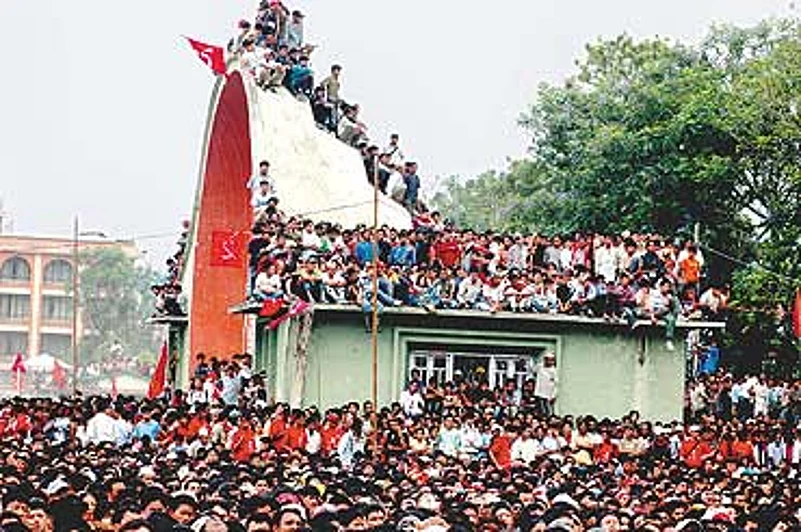
However, India is willing to allow some kind of international supervision when the Maoists agree to demobilise and disarm. This is because these are technical matters, and do not have political underpinnings as, say, an election to a constituent assembly has. "As long as international partners help us in furthering our interests, we don't have a problem," says the senior government source.
In Sri Lanka, India is deeply embroiled despite the presence of Norway, Japan, the EU and the US. But there India has encountered problems because coalition governments rule in New Delhi, Chennai and Colombo. This has left the government hobbled in taking tough foreign policy decisions to further its interests. For instance, the defence agreement between India and Sri Lanka has not been inked because of the fear of hurting the sensitivity of the government's coalition partners in Tamil Nadu. Many feel the signing of this pact could have sent a strong signal to the LTTE about its limits.
India was always doubtful about Oslo's mediation between the Lankan government and the Tigers. According to a source, Jaswant Singh, as foreign minister in the erstwhile NDA government, once remarked to his Norwegian interlocutor that mediating in Sri Lanka "will be like walking on water from Norway to Sweden. I wish you all the best." The already floundering negotiations suffered a further setback with the advent of the hardliner Mahinda Rajapakse's coalition. Though his government has tasked an all-party expert group to delineate the possible contours of "maximum devolution" of powers for making Sri Lanka a genuine federation, no timeframe has been set out for it to complete the task.
Sources assert India is better placed than ever to help manage the situation there. A hint of this came during Lankan foreign minister Mangala Samaraweera's visit to Delhi last month. Then, on May 8, Union defence minister Pranab Mukherjee told the press, "You know, instead of calling it a (defence) pact, we have defence cooperation in multifarious areas including the supply of equipment, training. For example, Lankan officers are the highest users (from any country) of all the technical opportunities we have in our defence institutions. Secondly, in respect of equipment, we are also providing as and when (there are) requests. There's constant interaction between the service officers." Sources say about 1,000 Sri Lankan service personnel undergo some kind of training in India every year, the highest for any country. They say New Delhi has found a way to support Colombo covertly and with "lethal" assistance.
A source summed up the logic of the Lanka policy thus: "New Delhi is sensitive to the fact that minus the LTTE the Sinhalas will walk all over the place, and any support to the Tigers will result in declaration of Eelam. The best strategy, till such time as the players in Sri Lanka are able to arrive at a home-grown solution, is to keep a lid on things. Complete victory of one side is not in our interests."
Short of a direct involvement, New Delhi's effort is to help bolster Colombo's efforts to take on the LTTE—without wiping it out. Once Sri Lanka was taken off the negative list (it was put there in pursuance of a hands-off Lanka policy after Rajiv Gandhi's assassination) in October 2003, opportunities opened. Realising the Lankan forces lack the capacity to fight the Tigers, and aware that Colombo is crippled financially, India devised a strategy that pushes its strategic interests and, in some ways, complements the Norwegian efforts. The planks of this policy are as follows:
- Promote plurality among the Sri Lankan Tamils, premised on the recognition that the LTTE is not the sole representative of Tamils
- Enable the Sri Lankan armed forces to take on the Tigers in various ways, including help in building the military infrastructure (in terms of providing vehicles, upgrading airfields, refitting naval vessels, underwriting the costs, providing soft loans)
- Helping monitor Sri Lanka's eastern seaboard; passing intelligence to curb the LTTE's expansionist agenda
- Coaxing Sri Lanka's ruling political class to evolve a consensus on devolution of power
- Increasing its presence there through economic cooperation.





















